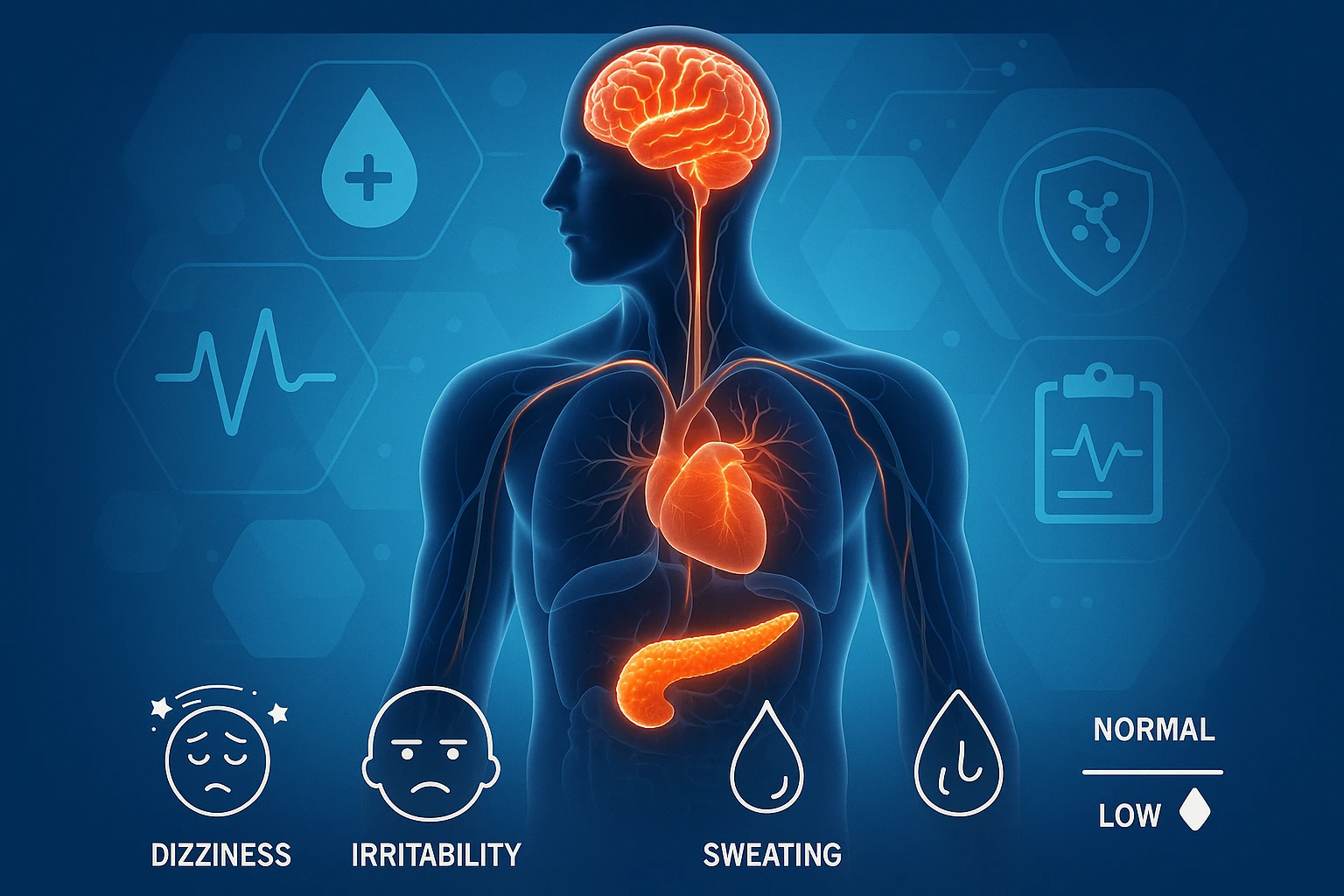Understanding Conditions That Mimic Hypoglycemia
Introduction
Did you know that certain health conditions can play a sneaky game of disguise, mimicking hypoglycemia?
In this world of double-takes, where symptoms can be as tricky as a soufflé that won’t rise,
recognizing these conditions is key to effective treatment. Join me as we navigate this fascinating
landscape, exploring the science behind these health phenomena, and learning invaluable ways to manage them.
Key Takeaways
- Many conditions mimic hypoglycemia symptoms, challenging accurate diagnosis.
- Identifying underlying causes is vital for effective management.
- Comprehensive evaluations can unravel these complex health mysteries.
- Awareness can guide appropriate treatment decisions.
Vascular Constrictions and Hypoglycemia
Conditions like Raynaud’s phenomenon can create confusion with falsified low glucose readings.
This can lead to a diagnostic wild goose chase! Ever had that frustrating moment when your
microwave says your food is done, but it’s still cold inside? Same energy. Research shows that
post-sleeve gastrectomy, vascular constriction may mimic low glucose levels.
- Rarely true hypoglycemia, but can confound diagnosis.
- Vascular health assessments can reveal true glucose levels.
- Simple lifestyle changes may resolve apparent symptoms.
Autoimmune Syndromes Resembling Hypoglycemia
Sometimes, our immune systems act like they’re auditioning for a role in a drama series.
Enter Insulin Autoimmune Syndrome, where the plot twist involves our body producing
autoantibodies against insulin. This condition, quirky as it sounds, reflects how our bodies
can even host an unintended hypoglycemic mimicry episode.
- Post-COVID-19 syndrome may include autoimmune hypoglycemia.
- Requires specific immunological testing for diagnosis.
- Can coexist with other autoimmune disorders.
Psychological Factors and Their Impact
Feeling jittery? Anxiety can make your body act like it’s on a rollercoaster – and not in a
fun way! Panic disorders often mimic hypoglycemia, leading to a misdiagnosis trail that
keeps doctors scratching their heads. Let’s pop on those science glasses: studies suggest
there’s much to explore about the psyche’s role in hypoglycemia mimicry.
Learn more.
- Panic symptoms parallel low glucose indicators.
- Holistic mental health assessments can differentiate causes.
- Mind-body interventions might help in symptom management.
Factitious Hypoglycemia: Intentional Cases
Picture this: someone sneaking insulin more secretly than one might sneak a chocolate
during a diet! Factitious hypoglycemia occurs when individuals intentionally induce low
sugar levels, throwing a curveball at diagnosis efforts. How curious!
- Deliberate actions lead to false low readings.
- Usually requires both medical and psychological evaluations.
- Diagnosis may be complicated, demanding vigilance and care.
FAQs
What conditions can mimic hypoglycemia?
Conditions like anxiety disorders, certain types of vasoconstriction, and autoimmune
syndromes can present symptoms similar to hypoglycemia.
Can diet contribute to hypoglycemia-like symptoms?
Yes, reactive hypoglycemia from dietary triggers can mimic acute hypoglycemia symptoms,
though the exact mechanisms aren’t fully understood.
How can one differentiate true hypoglycemia from a mimic?
Comprehensive testing and evaluations that look at mental, vascular, and immune health
can help distinguish the true cause of symptoms.
Conclusion
The landscape of conditions that mimic hypoglycemia is as vast and varied as a salad bar.
While their symptoms might trip up even the sharpest medical minds, understanding this
complexity is the first step to finding clarity and peace of mind—or should I say, peace of
body. Whether it’s embracing lifestyle tweaks or seeking those comprehensive checks, don’t
hesitate to empower your health journey. So, let’s fill our wellness plates with the rich
bounty of knowledge and take strides towards discerning these medical mysteries.


Leave a Reply